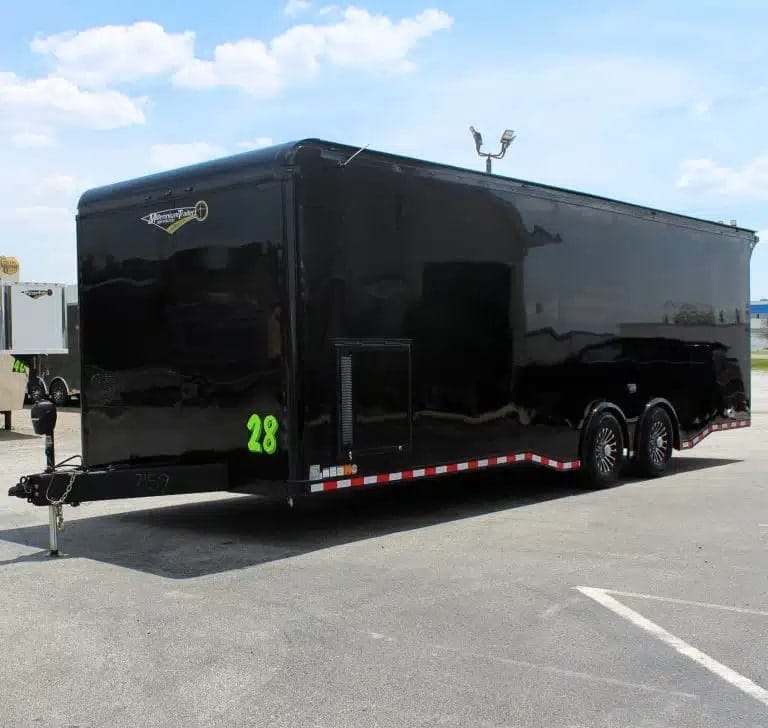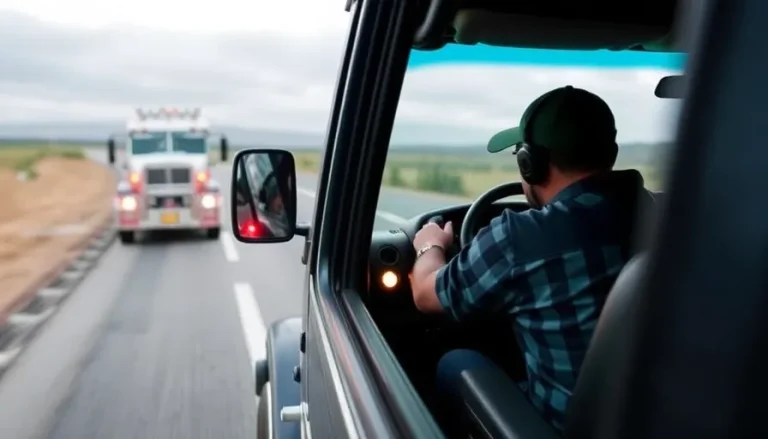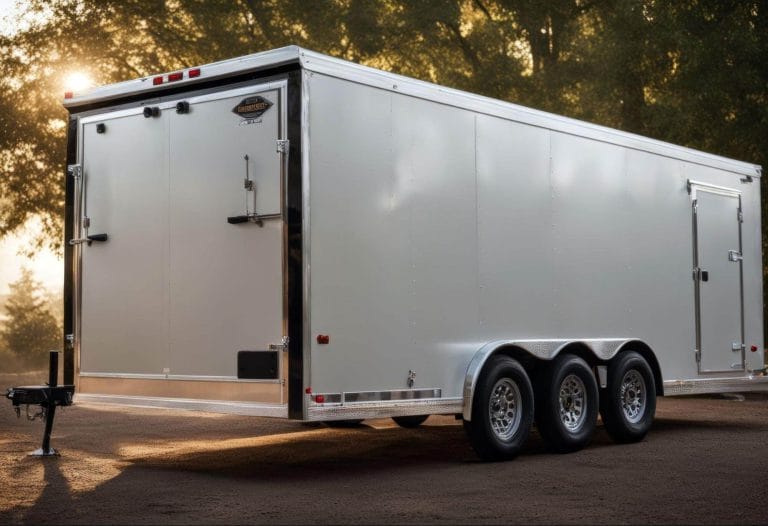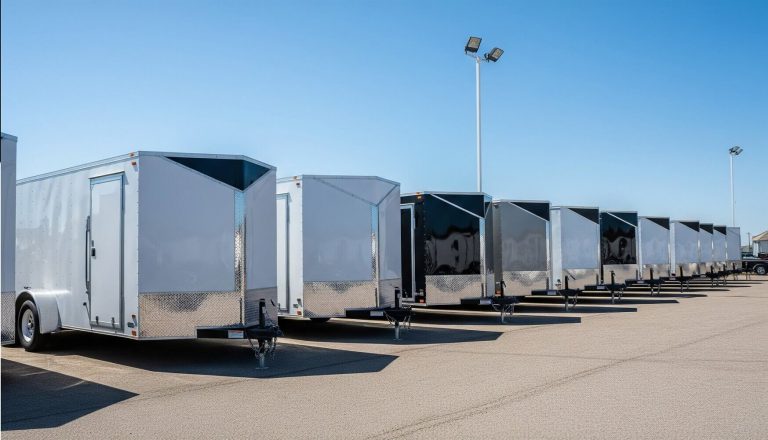There are many compelling reasons to go off-grid with an RV- for one, it offers a chance to escape and immerse yourself in nature without the limitations of traditional hookups. Many RVs still depend on conventional on-grid connections for electricity and water, which contradicts the essence of off-grid living.
You can travel anywhere and still enjoy modern comforts by powering your RV off-grid. Electricity provides essential amenities like lighting, heating, air conditioning, refrigeration, and the ability to charge phones or other devices. Portable power lets you access even more remote areas off the beaten track. Keep on reading to learn more about how to power a camper off-grid.
What Is an RV?
An RV, or recreational vehicle, is a mobile unit equipped with living quarters, designed for camping and travel. Some RVs, including travel trailers or caravans, come with built-in propulsion systems, while others require vans, trucks, or SUVs to tow them.
How to Live Off-Grid in a Camper: What is Meant by “Off-Grid”?
“Off-grid” describes a lifestyle where people rely on self-sufficient and independent systems for power, water, and waste management, without using traditional utility connections. You might be wondering how to live off-grid in a camper- off-grid RV living usually involves utilizing renewable energy sources like solar power systems, wind turbines, or generators for electricity.
Water conservation is achieved through efficient use and recycling, while waste is managed through composting or responsible disposal methods. This approach enables RVers to explore remote and secluded locations while maintaining a sustainable and eco-friendly lifestyle. Additionally, some RV enthusiasts opt for custom trailers or design their own to meet specific off-grid living needs and preferences.
Why You Should Buy Gas Generators
Gas generators represent a traditional method of providing power for RVs. There are two main types: portable generators and built-in onboard generators. Onboard systems typically draw fuel from the RV’s chassis, though some models may include an onboard fuel tank or utilize propane.
Despite their drawbacks, these generators have long been the standard choice for powering RVs- they’re large and heavy, require continuous refueling, and contribute to noise and environmental pollution. Gas generators aren’t the best solution for those seeking a quieter, more eco-friendly way to spend time in nature.

Why You Should Buy Portable Solar Generators
Portable solar generators harness solar energy as a sustainable alternative to gas generators. They eliminate the shortcomings of gas generators, such as fuel costs, noise pollution, and environmental impact.
These generators feature small solar panels that convert sunlight into stored energy, ensuring a reliable power supply while on the road. They come in various sizes and capacities, with multiple outlets for powering multiple devices.
Why You Should Buy Integrated Solar Systems
Integrated solar systems are seamlessly incorporated into the RV’s structure, offering a comprehensive power solution. Typically installed on the RV’s roof, these systems include solar panels, a charging unit, a battery pack, and an inverter housed within the vehicle. While they require initial vehicle modifications, they can power all onboard appliances and lighting systems.
Why You Should Buy Wind Turbines
Wind turbines offer another off-grid power option for RVs, generating electricity while the vehicle is in motion. Despite being desired by nearly half of surveyed RV owners, wind turbines remain a less commonly adopted solution, with less than 2% of owners having installed them. This low adoption rate is attributed to wind turbines’ limited power generation capacity, particularly in comparison to solar panels. Some RV owners combine wind turbines with solar panels to mitigate weather-related energy fluctuations, providing a dual-power system for enhanced reliability.
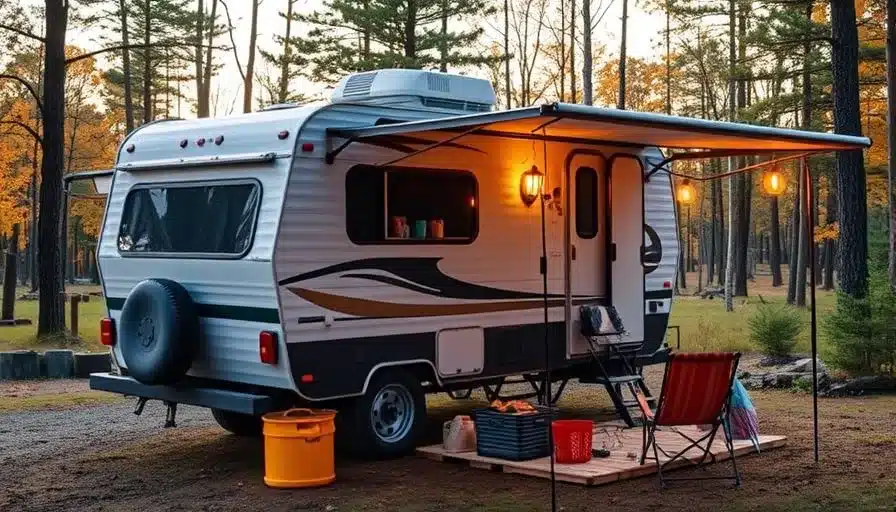
Why You Should Buy Battery Systems
In addition to solar and wind power, high-capacity battery systems offer another solution for powering your caravan off-grid. Lithium-ion batteries have gained popularity for their durability and efficiency. These batteries can be charged via the vehicle’s alternator while driving and can be paired with solar panels for a comprehensive power setup.
Lead-acid batteries can still be effective for simpler systems. AGM (absorbent glass mat) batteries are often preferred. However, lithium batteries provide significant advantages: They deliver over three times the power of a similar-sized AGM battery while weighing about 60% less and producing 30% more power.
Inverters
Most off-grid camper battery systems use a 12-volt direct current (DC), while household appliances generally run on 240-volt alternating current (AC). An inverter is essential for converting 12v DC power from your batteries into 240v AC power, making it compatible with your camper’s electrical system.
12v electricity is ideal for powering many items, such as lights, water pumps, and refrigerators. The inverter converts 12v DC electricity to 240v AC, then distributed to standard power outlets in your camper. This allows you to use electronics, charge appliances, and enjoy power as you would at home.
DCDC Chargers
DCDC chargers are built to charge your batteries while you’re on the move. They ensure your batteries are fully charged when you arrive at your off-grid camping destination, even on cloudy days with minimal solar charging.
Tips for Energy Efficiency
Opting for energy-efficient appliances can significantly reduce power consumption and extend your off-grid stay. Consider using low-wattage devices and appliances specifically designed for caravans. LED lights, three-way fridges, and other appliances tailored for campers are ideal for optimizing power efficiency.
Final Thoughts: Mastering Off-Grid Power for Your Camper
Successfully powering your off-grid camper involves planning and investing in the right tools. Your power supply system should be tailored to your specific needs and travel habits, whether you opt for solar panels, wind power, generators, or a combination. Selecting the appropriate components, such as batteries, inverters, and energy-efficient appliances, will enhance your off-grid experience.
You can enjoy the freedom of remote camping while maintaining the comforts of home by making informed and safe choices. With a well-planned off-grid power setup, you can embark on memorable camper adventures without worrying about running out of power. With the right setup and a spirit of adventure, you’ll be well-equipped for unforgettable off-grid experiences.
Bibliography
- Truck Camper Magazine. TCM Checks Out the WindWalker Wind Generator. Accessed June 28, 2024.
- Popular Science. Best Gas Generators of 2024: Portable Power for Emergencies and Adventures. Accessed June 29, 2024.
- Poweroad. Buying a Lithium Battery for Your RV: What You Should Consider. Accessed June 29, 2024.



